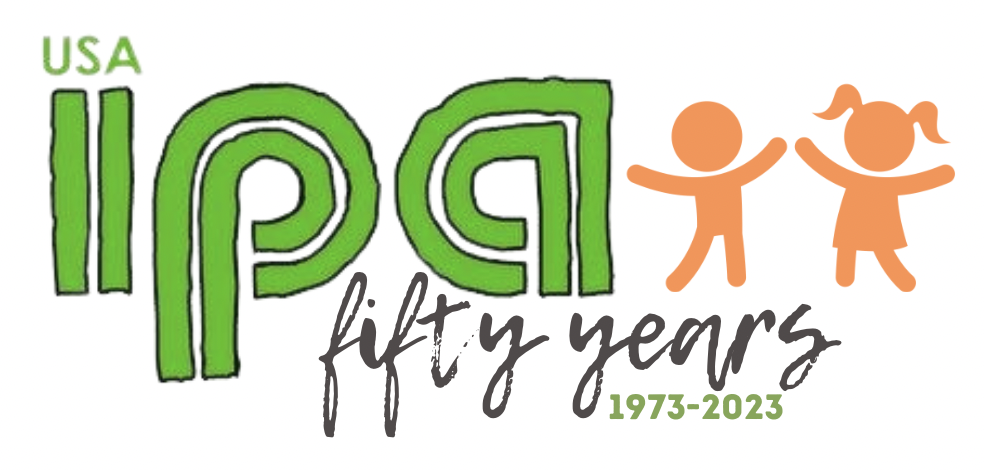The Importance of Recess Research and Advocacy
 There is a misconception in our society that recess does not serve any real purpose. The Board of the American Association for Promoting the Child’s Right to Play (IPA/USA) believes that recess is vital to the child’s overall healthy development. We are pleased to offer parents, teachers, and school administrators the following information and resources that support the need for elementary school recess.
There is a misconception in our society that recess does not serve any real purpose. The Board of the American Association for Promoting the Child’s Right to Play (IPA/USA) believes that recess is vital to the child’s overall healthy development. We are pleased to offer parents, teachers, and school administrators the following information and resources that support the need for elementary school recess.
Recess responds to the child’s social and emotional needs
- If we eliminate recess, we are ignoring the fact that for many children, the opportunity to play with friends is an essential reason for coming to school. Ask any group of Second Graders, “What do you like most about school?” and a majority will answer, “Recess!”
- Recess can serve as an outlet for reducing or lowering the child’s anxiety. As adults, we all feel frustrated, tired, and even angry at times. Adults have learned to control these emotions. The elementary school-age child has very few coping strategies, and as a result, sometimes resorts to inappropriate outbursts, nail-biting, and temper tantrums. Recess provides a means for the child to manage stress.
- Our communities continue to represent the great “melting pot,” and recess is a contributing factor for cultural exchange. A vital aspect of play is the non-threatening way children of different cultures learn from each other.
- Recess provides the opportunity for solitary play. Some children need the chance to break away from their classmates to collect their thoughts.
Recess contributes to the child’s cognitive and intellectual needs
- Students who do not get a break are much more fidgety in the classroom and are deprived of interacting with different peers and watching and learning from other children. Eliminating recess is counterproductive.
- Unstructured play allows the child to exercise a sense of wonder, which leads to exploration, which leads to creativity.
- The mind, brain, and body are one. When children are denied vigorous recess activities, the body’s heart isn’t allowed to pump fresh oxygen into the blood to nourish a sluggish brain.
Recess addresses the child’s physical needs
- Physical activity is essential for the healthy growth and development of children. In 2019, according to the Centers for Disease Control, the prevalence of obesity among 2-19 years was 18.5% and affected about 13.7 million children and adolescents. Obesity prevalence was 13.9% among 2- to 5-year-olds, 18.4% among 6- to 11-year-olds, and 20.6% among 12- to 19-year-olds. Childhood obesity is also more common among certain populations.
- Play in the great outdoors during recess is an expanding and exciting experience for children. It is an opportunity to breathe fresh air, move on blades of green grass, smell fresh plants and flowers, and run to a favorite tree.
- Recess provides opportunities for children to explore many types of active play regardless of the stereotypical expectations associated with gender.
- Recess offers many children an opportunity to demonstrate favorite cultural games, hand and rhythmical chants, and other enjoyable pastimes.
- Recess affords an avenue for the child’s natural urge for vigorous physical play. Through active and even rough and tumble play, young children learn about their bodies’ capabilities, and how to control themselves in their environment.
- Traditional recess activities like jump rope, kickball, and hopscotch encourage children to take turns, negotiate or modify rules, and interact cooperatively.
Recess is not an alien word in our adult vocabulary, nor an abnormal response to physical and mental needs. For example…
- The US Army acknowledges the need for a ten-minute break every hour during training sessions. This “at rest” practice increases the likelihood of more significant results when training over an extended interval. Children deserve the same respect and consideration.
- Judges call a recess when courtroom participants become tired or unfocused.
- Congressional sessions recess for similar reasons.
- Labor unions mandate breaks to ensure safety.
- Breaks and lunch hours are corporate versions of recess.
- Fortune 500 and cutting-edge businesses provide exercise rooms for employees.
